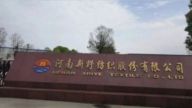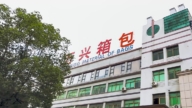【新唐人2013年06月12日訊】日前,中共審計署發佈了「36個地方政府本級政府性債務審計結果公告」,公告顯示,36個地方政府的債務餘額接近3萬8千5百億元,比2010年增加4400多億元,增長12.94%。不過這個看似驚人的巨大地方債務數目,專家認為,實際債務比這個應該更大,中共地方政府官員,為了私飽中囊而高高築起的債臺,將成為難以解決的大問題。
6月11號,中共審計署發佈的地方政府債務結果,有16個地區的債務率超過100%,債務率最高的達到219%。
香港《經濟日報》報導,這次審計的對像大部分是省級及省市級城市,採取抽樣調查方式完成。36個接受審查的地方政府中,11個省級政府和13個省會級政府的2012年債務規模,比2010年有所增長,其中4個省級和8個省會城市級債務,增長超過20% 。9個省會城市政府負有償還責任的債務率,超過100%,最高的達188.95%﹔如加上政府負有擔保責任的債務,債務率最高的達219.57%。
美國「南卡羅萊納大學」艾肯商學院教授謝田指出,一般說來,調查個人收入和個人稅收的時候,會採用抽樣調查,地方政府並沒有那麼多,應該採用普查,當局抽樣調查時,很可能避重就輕。
美國南卡羅萊納大學艾肯商學院教授謝田:「用普查的辦法,才會真正知道中國地方債務的準確規模有多大,也許是中共自己意識到,上下互相欺騙,可能連準確去調查一下的信心都沒有了,只能用抽樣調查,實際上對省市縣一級的政府,地方政府用抽樣調查是非常滑稽的,也不符合國際的慣例。」
公告中顯示,2012年底,在36個被審查對像中,22個省本級和省會城市本級政府,承諾以「土地出讓收入」為償債來源,不過債務需償還的本息,是當年可支配土地出讓收入的1.25倍。5個省本級和3個省會城市本級政府的有關部門,違規為817億6千7百萬元的債務舉借,提供擔保。
大陸經濟學家茅於軾:「地方政府靠賣土地不是長久的辦法,土地(遲早)要賣完的,而且這種方式是一個低效率的資源配置,資源配置的高效率是通過市場配置,土地要通過市場買賣,買方、賣方都有競爭,這形成一個市場。現在只有買方的競爭沒有賣方的競爭,這不是個市場,所以是非常低效率或者說浪費非常大的一種辦法,債務問題遲早要出大事。」
據「中國公民監政會」的發起人郭永豐反映,中共的各級官員在買官時付出了很大的代價,上臺後往往借用修橋鋪路,建橋、建壩、建房的方式,把行賄的錢收回來。郭永豐說,往往新官上任,就會針對前任興建的項目指出缺點,然後拆掉,在拆和建的過程中,既有了政績,又有了發財機會。
中國公民監政會的發起人郭永豐:「作為中共的官員,不管是哪一個級別的,他必須要有項目來做,表面上是以公共的名義來申請,如果沒有項目就沒有賄賂,沒有發財的機會,第二個,作為他的政績向上面要匯報,大多數的錢流入他們的腰包裡面了,只有很少的一部分做了些表面文章,可能建了一棟豆腐渣的樓房,或者是修了一條豆腐渣的馬路。」
《經濟日報》的評論指出,倘若按照審計署對部分地區的抽查和摸底結果來推算,儘管去年底,地方債的規模有可能較2010年增長12.94%,但地方債佔中國國內生產總值(GDP )的比重,卻從26.7%下降到23.3%,兩年下降3.4個百分點。
謝田指出,中國GDP真實的數字處於一種衰退的狀態,地方政府的債務仍在不斷的增加,地方政府的債務佔GDP的比重應該是上升才對,中共在數字上造假,目地是企圖告訴民眾,地方債務還處於一種可控制的水平,不用擔心。
採訪/編輯劉惠 後製/李智遠
How much is known of China’s local debt?
China’s National Audit Office recently released
the results of its audit of 36 local governments.
The report shows the debt balance of 36 local
governments is nearly 3.85 trillion yuan ($6.27 billion);
nearly a 13% increase from 440 billion yuan ($71.7 billion)
in 2010.
Although these numbers may already seem shockingly high,
analysts say that the actual debt should be much higher.
Analysts say the huge debts owe to Party officials
in local governments who try to fill their own pockets,
and that it will be a huge and difficult problem to solve.
On June 11, the Chinese Communist Party (CCP)’s
National Audit Office released it’s report on local debts.
16 areas have a debt ratio over 100%,
with the highest reaching 219%.
Hong Kong’s Economic Times says the audit mainly
focuses on provinces and provincial capital cities.
The data was conducted via survey.
Debt balances for 11 provincial governments and
13 provincial-capital cities have increased since 2010.
Debt increased more than 20% for eight capital cities
and four provincial governments.
Nine capital cities bear the responsibility to repay debts
that exceed the 100% debt ratio, with highest at nearly 189%.
If including guaranteed debts, the highest ratio is nearly 220%.
University of South Carolina Aiken Business School
Professor Xie Tian pointed out that
the survey of personal income and tax
are generally done by sample.
The numbers for local governments are not that high.
It’s likely the CCP wants to avoid places with serious issues.
Professor Xie Tian: “Finding out exactly how large
the debt is can be done by conducting a census.
Perhaps the CCP doesn’t even have confidence to investigate,
realizing the deception between upper and lower governments.
Sample surveys of local governments are rather funny,
and they don’t conform to international practices."
The audit shows that among the 36 local
governments investigated at the end of 2012,
22 provincial governments and capital cities
promised to pay debts using “land revenues."
However, the interest cost of the debts are 1.25 times
higher than the income from land sales on the year.
Five provincial level and three capitals city level
governments provided guarantees for the debt of 81.7 billion yuan ($13.3 billion), which against the rules.
China economist Mao Yushi: “Local governments’
relying on land sales is not a long-term approach.
Land will be sold out sooner or later.
This approach is also an inefficient allocation of resources.
Efficient allocation of resources is through market.
There can only be a market for land trade through
competition between buyers and sellers.
Now there are only buyers, no sellers, so a market can’t form.
So it’s a very inefficient and wasteful way to do things.
The debt problem will lead to big disasters sooner or later."
Guo Yongfeng, founder of the Association of
Chinese Citizens for Monitoring the Government,
says CCP officials at all levels pay big bucks to buy positions.
After they take office, they want to get the money back
by building bridges, roads, dams or houses.
Guo says oftentimes new officials point out
shortcomings of previous projects and dismantle them.
In the demolition and construction process
they can get achievements while making a fortune.
Guo Yongfeng: “CCP officials, no matter what level,
must have a project to do, and apply on behalf of the public.
Without projects, there would be no bribes. Projects are
also reported to their superiors as good performance.
Most of the money flows into their pockets,
and only a small part of the money
might be used to build low-quality buildings or roads."
Economic Times pointed out that,
based on the survey’s results,
despite possible local governments’ near 13% debt
increase at the end of last year since 2010,
the proportion of the debts and China’s GDP was dropped
from 26.7% to 23.3%, which decreased 3.4 percentage points.
Xie Tian says China’s true GDP figure is declining,
while the debts of local governments are increasing.
So the debt ratio should increase.
He says the CCP fakes the numbers to make people think that
local debt is still under control and there is no need to worry.































